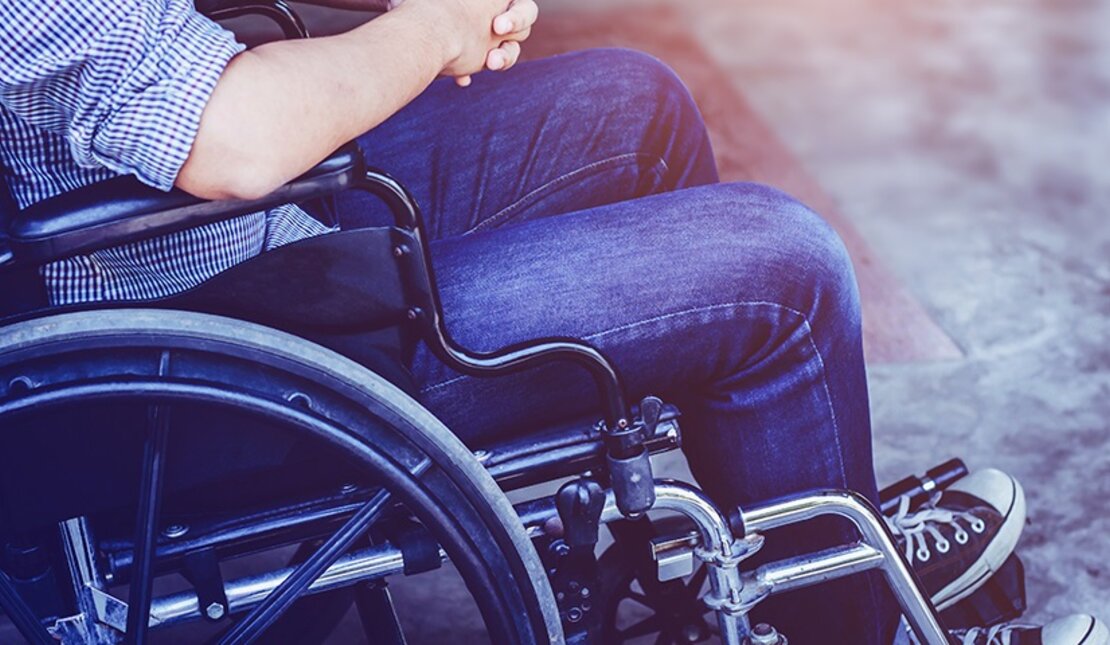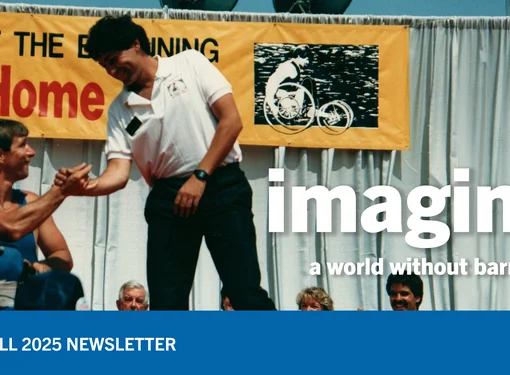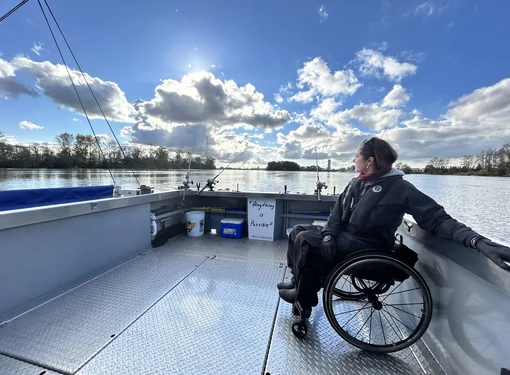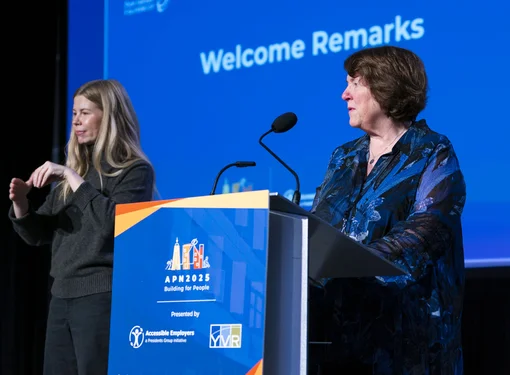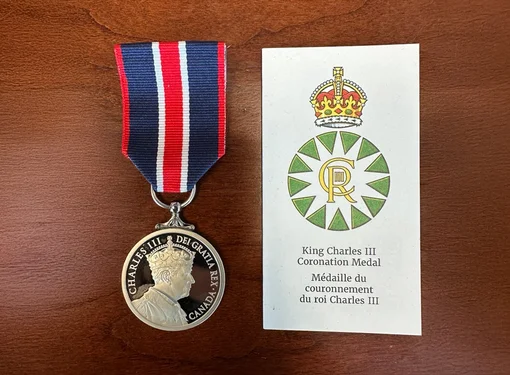Mental health and mindfulness for people with disabilities
Disclaimer: The information in this blog is not a substitute for a diagnosis and treatment plan by a licensed healthcare professional. If you’re struggling with mental health issues, please call a doctor in your area.
It felt hard to breathe. My heart was pounding so hard that I could hear it in my ears and feel it in my head. My muscles were tense and tight. I felt lightheaded and dizzy, almost like I would faint. My stomach turned and cramped. My chest hurt. Sweat rolled down my face. Am I having a heart attack? I thought. With each thought that raced through my mind my heart would only beat faster, harder, and I felt more out of control.
If you don’t recognize these symptoms, this is what a panic attack feels like. You may already know a little about panic attacks, anxiety, and depression, but they are much more common than you realize. The World Health Organization cites that one in four individuals have a mental health concern. That’s a huge number of people. It’s also important to know that many people experience anxiety or depression as a stress reaction after a big life-changing event, for example, acquiring a disability of some kind.
For people with disabilities, it’s a real struggle to manage what would seem like regular daily activities to others. My anxiety and depression began a few years after the accident that left me an incomplete quadriplegic. I started having negative feelings about driving by myself, going to the store, falling, and being looked at or judged by others. Depression is one of the most common conditions secondary to disability and chronic illness. According to the North Carolina Office on Disability and Health, studies have shown depressive symptoms may be two to 10 times more common in individuals with disabilities or chronic illnesses. Consistent with this finding, the American Association on Health and Disability cites a number of studies that find individuals with disabilities have a higher incidence of depression and anxiety symptoms.
Not all people with disability are going to have depression or anxiety, but some of the challenges they face put them at higher risk. We are all aware that socioeconomic status, health, pain, mobility, experiencing a trauma, and isolation are common challenges for people with disability and it is these very challenges that elevate the risk of mental health concerns.
Mental health concerns such as anxiety and depression add an additional barrier for those with pre-existing disabilities to face. One such barrier is that mental health issues still carry a lot of stigma. “I am weak” or “It’s just in my head’ are two very common myths that prevent people from seeking help. But mental health and physical health are inextricably interconnected. “There is no health without mental health” (World Health Organization) - mental health must not be ignored or denied. Sadly, we are our own worst enemies and we to put up barriers to taking care of ourselves along with our own mental health.
One of the reasons I became a mental health worker is because I know the struggle that I went through after my accident. After I went through a difficult recovery process, I learned that much of what I had experienced is common to go through after a traumatic life changing incident and can be considered a normal reaction to a very abnormal set of circumstances. Armed with newfound knowledge and experience I set out to help others.
What should I be looking for? Signs and symptoms of a mental health issue
If you’ve recently acquired a disability, or even if you’ve had one for years, watch out for the signs and symptoms below and take action right away.
- Ongoing low mood and / or lack of enjoyment in activity in general
- Increased irritability / anger
- Change in sleep (either difficulty getting enough sleep or sleeping all the time)
- Change in appetite (either difficulty eating or eating significantly more - often “comfort foods”)
- Decrease in memory and/or concentration
- Fatigue or decrease in energy
- Increased worry
- Withdrawing from people
- Ongoing avoidance of certain persons, places, things
- Thoughts of suicide or death
Self-help: Coping tips and strategies
- Connect with others. We are social creatures. Get our and connect with family, friends, or co-workers. Going out with people and doing something you enjoy is a good way to break the cycle of self-talk and releases good “happy” chemicals.
- Keep busy. When you’re active, you increase your chances of experiencing something pleasurable as well as stopping the loop of negative thoughts. Pick one or two things to start that appeal to you and put it to the test. Look at your mood before doing it and then again after. We often enjoy it more than we think we will.
- Exercise. Start including more exercise in your life even if it’s something very small to begin with. Exercise is Mother Nature’s natural antidepressant. It has been shown to release similar chemicals to that of antidepressants and people report feeling better even if they only exercise for half an hour a few times a week. Exercise also relieves stress and can help improve sleep quality.
- Give back. Give to your community or good cause. Volunteer or do something purposely to help someone or some organization. We often feel good about helping others and often provides a sense of accomplishment and meaning.
- Try continuing education. Try and learn something new each day. Sign up for a class or a course. By learning and developing a skill or knowledge about something we feel good about ourselves.
- Practice mindfulness. Learn how to stay in the present moment without judgment. Try to view things with a healthy sense of openness and curiosity – yes, even unpleasant things!
- Acknowledge and accept things as they are. Avoiding or trying to deny, dismiss, or not accept something that has happened takes a lot of energy and is ineffective. Only through acceptance can we come to peace with what is and move forward. You can’t map out how to get to point B if you don’t accept you are at point A.
Looking for more information? Helpful resources and information
The Free Mindfulness Project offers free mindfulness exercises, videos, and apps
Headspace has free "Take 10" Program, a 10-minute a day meditation practice
Centre for Clinical Interventions offers information and workbooks for a variety of mental health issues
Anxiety BChas information for parents on anxiety
Mind Check has information on depression, anxiety, and substance use for teens
Guest blogger Ryan Sturgeon has a Bachelor’s degree in Science degree, a Master’s degree in Counselling Psychology, and currently works as a community mental health worker. He’s a husband, and proud father of 4 children.
